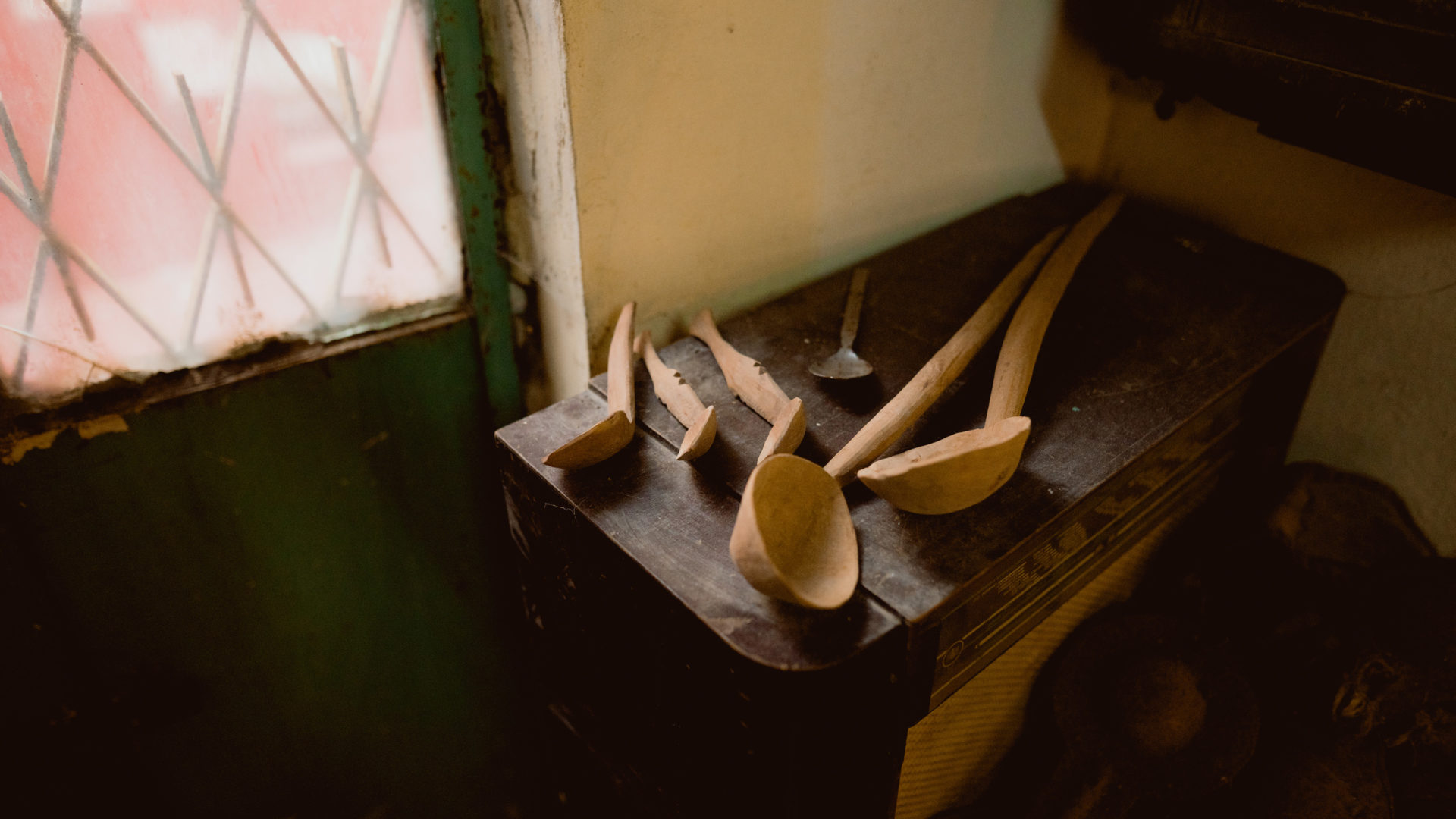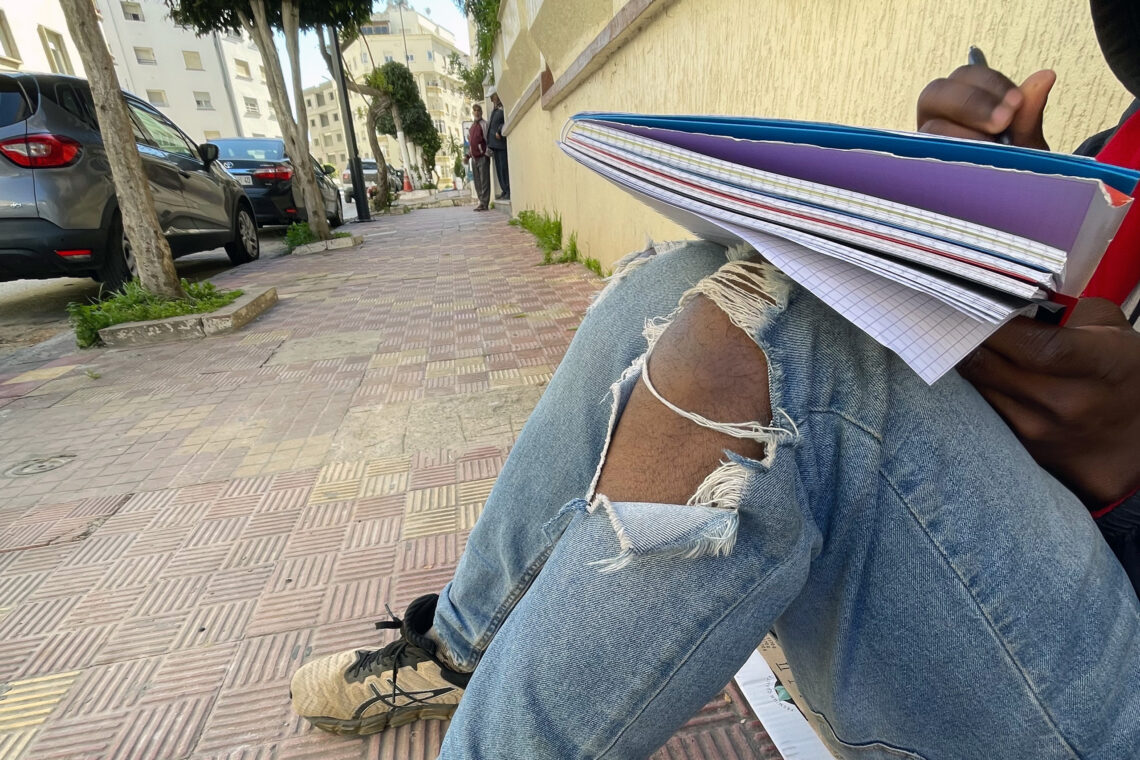As we walked down the streets of the Medina leading to the antique shop, I reminisced about the sweet days of my childhood. I followed a group of fellow students through the unusually quiet streets until we reached our destination. With great anticipation, I entered the antique store, excited to see what I would find.
Within seconds of being in the store, an overwhelming wave of emotions rushed through my body. The costume jewelry and metal clutch purses brought back memories of playing dress up out of my grandmother’s closet. Flashbacks of eating macaroons and drinking tea with her flooded my mind as we passed by walls of teapots and cups. Old dust-covered mirrors lined an entire wall of the store, a handful of which looked like they could have come straight out of my grandparents’ rambling old house. The defunct dial phones, the dusty old French and Spanish books, the painted tiles—these all took me back to that big house on 4th Street.
My younger brother, Nate, and I used to go up to the attic and rummage through countless boxes filled with bric-a-bracs and what others might consider fit for the Salvation Army. Sometimes we’d come across a treasure box. We loved finding old washed-out snapshots of my dad from when he was in high school. We would pull out all the pictures of him and bring them home. Then he’d tell us stories about each one. Among my favorite attic finds were my dad’s old high school letter jacket, and my aunt’s prom dress which my grandmother had sewn for her. Although they were much too big for us, the jacket and prom dress quickly became my and Nate’s favorite accessories while playing our childish games.
Back in the antique shop in the Medina, just as I was about to start down the stairs, I took one last look around a room that so closely resembled my grandparents’ cluttered attic. That’s when I spotted a rusty flower pot filled with dozens of wooden spoons.
There were spoons of all different lengths and sizes, teaspoons, ladles, soup spoons, and big spoons used for mixing. The one spoon that stood out to me, though, was long and flat. That spoon was for me a lot more than a kitchen utensil because of the memories it stirred. I was smiling at flashbacks of my brother and I running around, screaming bloody murder, in fear that my grandmother was going to beat us with her dreaded flat wooden spoon.
Dinners with my big crazy family turned into late evenings sitting around the long dining room table in my grandparents’ house. For hours we’d listen to my dad and his sisters tell stories about their childhood. My grandfather was a businessman and spent a lot of time working, so my grandmother stayed home with the kids. According to these wild dinnertime stories, my grandmother had a hard time controlling her children’s rambunctiousness.
One of my dad and his sisters’ favorite stories was how my Grandma used to smack their bottoms with a wooden spoon to stop their misbehaving. Before she would hit their behinds, she would always say, “Just know, this hurts me more than it hurts you.” Nate and I could never get enough of these fascinating stories, so we always asked our family to tell us more about the wooden spoon. The stories always brought us a lot of laughter but caused my brother and me to fear the wooden spoon.
As soon as grandmother discovered just how scared we were of the wooden spoon, she started using it as a scare tactic against us too. Deep down we wondered if she had it in her to hit one of us with the spoon. One day we decided it would be a good idea to test her limits. We began to cause trouble, as we always did, but this time Nate didn’t stop when she threatened to bring out the spoon. He stood at the top of their L-shaped staircase, teasing my grandmother who was at the bottom waving the wooden spoon and saying, “Don’t make me do this, Nate!” He continued pushing her buttons, and before I knew it, my grandmother was marching down the stairs and dragging Nate along with her.
Exhausted from the fight, Grandma sat down on a bench in her kitchen. “Okay,” she said, “come stand in front of me, Nate.” With a mischievous smirk on his face, my brother got up and stood in front of her. Then she came out with the famous words, “This really does hurt me more than it hurts you, but you need to learn.” Hesitantly, she drew back the wooden spoon. She lined it up with Nate’s bottom, then looked away. I could tell it was hard for her to punish my brother in this way.
“Smack,” she hit his bottom, except something didn’t sound quite right. Nate and I began to break out in uncontrollable laughter as he pulled an aluminum pie plate out of his pants. My grandmother took a sigh of relief when she realized that she had only hit the pie plate and not his actual bottom. She, too, began laughing.
Reminiscing on this scene, I stood in the cluttered top floor of the antique store in Tangier, smiling like a fool.






Comments are moderated by the editor and may not appear on this discussion until they have been reviewed and deemed appropriate for posting. All information collected is handled in a manner consistent with our privacy policy.